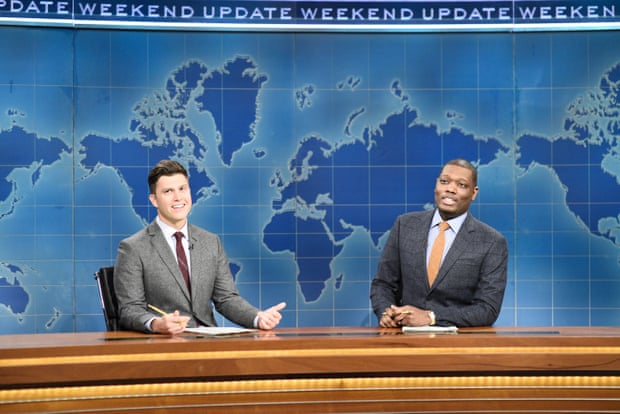by FRANCINE PROSE

Watching Saturday Night Live over the past few seasons, I’ve noticed the increasing number and frequency of jokes about old people: the feebleness of the aging brain, the repulsiveness of the elderly body, particularly the elderly female body.
Partly because no one, it seems, is ever “called out” for ageism – I can’t think of one public figure who has been “cancelled” for mocking the aged – I persuaded myself that, as an older person, I was being hypersensitive. But then, this past weekend, on the Weekend Update segment, the cast member Micheal Che told a series of jokes about a report that a Chinese woman in her 60s had given birth. The labor, Che noted, had involved an unusual amount of “friction” and (I may be slightly misquoting here) the delivery had been like “removing a penny from a wad of chewing gum”. Moreover, he added, the new mother could nurse simply by leaning over the crib. The audience laughed. I winced. My husband said: “Ouch.”
I tried to think of another demographic – Asians? African Americans? Women? Members of the LGBT community? – who would have been the object of humor quite so cruel, so barbed, so personal. But it’s not only in the sphere of comedy, and on network TV, that the old are discussed in ways that would never be tolerated by (or about) another group.
This summer, the New York Times ran a piece by Ann Bauer titled Do Old People Have a Different Smell? After renting her house to an elderly couple, Ms Bauer returned to find that her home had an odd scent, “strange and cloyingly human”. A Google search provided Ms Bauer with conflicting results. One biologist at the Monell Chemical Research Center found that an increased concentration of an unsaturated aldehyde produced, in the old, “a distinctive grassy, waxy or fatty odor”. This confirmed what a Japanese study had found in 2001. Apparently the Japanese “have a name for older person odor – kareishu – and it has a definitely negative association”. These conclusions were disputed by an organic chemist, also at the Monell, who was himself jokingly accused of being biased, because he was old.
The results of these studies interested me less than the fact that they were carried out out at all – and, I assume, funded. Are there studies in progress designed to determine if black people smell funny, or if one can identify a gender nonconforming person by an educated sniff?
Ageism is more than a joke. Age discrimination in the work place is difficult to prove, to prosecute and to rectify than any other sort of employment bias. That elderly person greeting you at the door of Target or checking out your groceries at the supermarket may well have once held – and been fired from – a very different job.
The Guardian for more